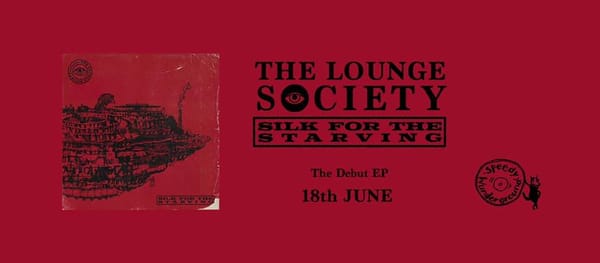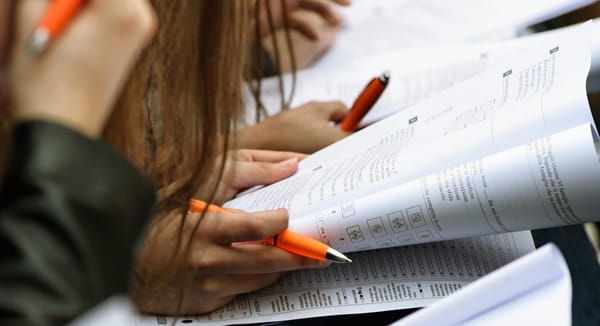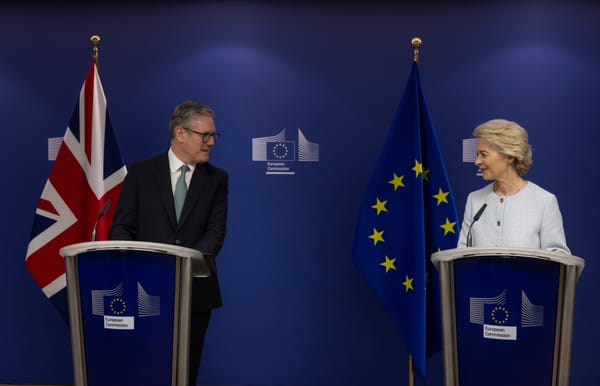Kohnfused About Classical No.9 - In Conversation with Naomi Anderson Eyles
Each week Michael Kohn helps bring classical pieces into a more inviting and inclusive light.

This week, I caught up with the much-loved administrator of the Blyth centre, the hub of Imperial’s art and music, Naomi Anderson-Eyles, and her experiences with Classical music. What follows is the product of a delightful conversation and one choice that is particularly off the wall!
Naomi’s upbringing in music near Fargo, North Dakota was rooted with her parents- her mum into classic rock and roll, with her dad a die-hard country and blue grass fan. As I’m trying to broaden my musical outlook I picked up on her recommendation to check out Paul Anka’s swing covers of famous pop songs- Mr Brightside particularly put a smile on my face. On the boundary between classical and pop is the Metallica album with the San Francisco Orchestra, which she said opened up a lot of people to the world of the orchestra. Often, she said, mainstream media inadvertently has a great impact on classical music, such as Copland’s Rodeo (featured in Kohnfused about Classical no.7) being present in a beef advert, and Wagner’s Ride of the Valkyries pervades a lot of movies such as Thor Ragnarok, or pieces like Clair de Lune by Debussy being found on a Christmas album.
Grieg- Morning Mood from Peer Gynt
4 minutes
Naomi says that her first proper experience (excluding classic cartoons and background music) with classical music was an elementary school theatre trip where the ever-popular Peer Gynt suite was played. She describes being blown away by the beauty of the Morning Mood, which opens this work that ends with the more famous “In the Hall of the Mountain King”. Naomi says that with such good music, it’s easy to get goosebumps and understand what the composer was trying to get across.
The work describes the sun coming up and a gentle awakening from slumber, opening with the flute over a very sparse orchestra, each solo instrument allowed some ‘rubato’- lengthening some phrases and shortening others to really capture that sleepy feel. About a minute in, the whole orchestra comes in and warm brass chords colour the joyful string melody. Other highlights of the suite if you have the time are the mournful death of Aase (the mother of the title character) where the clever use of the lower strings really adds a dark texture which at its thickest is sure to pull on the heartstrings, while the “In the Hall of the Mountain King” is always fun as it gets faster and faster as the trolls it portrays become more and more manic. In fact my (Michael)’s best memory of that piece is in the clever knife tricks used in Johnny English Reborn (deleted scene) by Rowan Atkinson’s character when set to this music.
Akiko Yamane - Illuminated Baby
4 minutes
Warning: not for the faint hearted - very atonal and dissonant.
The Japanese pianist Noriko Ogawa has played at several Imperial events over the years, and on one occasion chose this modern showpiece for solo piano. It’s incredibly demanding for the soloist- made more daunting by playing it from memory as Ogawa did, and many have had to for competitions in a very short period of time! The contemporary Japanese composer Akiko Yamane was inspired by her child walking through a busy market with pretty flashing lights that are represented in short flashes by the jumping dissonant chords, but also in the scales with the longer, brighter lights. Naomi was blown away not just by the uniqueness of the piece but also the heroic effort to memorise it, indeed showing that the creative arts really do matter and are highly skilled industries that Boris Johnson really isn’t doing enough to support, not just with the pandemic funding, but also the driving out the creativity from the curriculum. Due to the recent nature of the work, it’s only found on YouTube.
One of the things Naomi likes best about her job is the amount of music that she is exposed to. Through the lunchtime concerts there has been Floreligium with a harpsichord, fretwork (a viol consort where everyone plays the renaissance instrument that is halfway between a viola and cello), and a performance on a Stradivarius- the gold standard of violin making. Indeed, we had a difficult time narrowing it down to the two pieces presented here today, she said “how can I pick a favourite when every week there’s a new favourite!”- the most recent being Vaughan Williams’s Six Studies in English Folksong. There’s also the constant presence of music, with all the students playing and getting better- she says that one postdoc student even writes his own music. She looks forward to welcoming students back to the Blyth centre soon! One final comment from me- definitely check out the Lunchtime concerts, available for free on Imperial’s YouTube channel every Thursday lunchtime!





